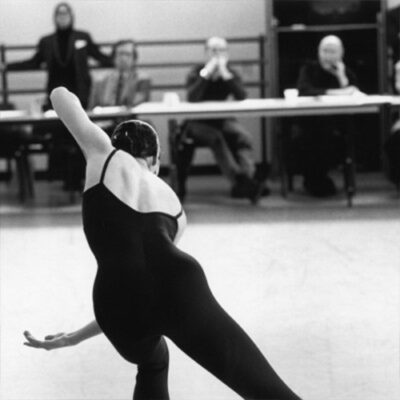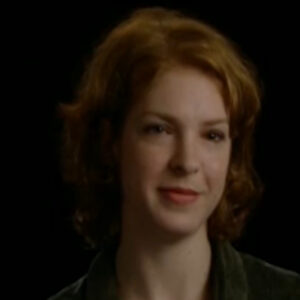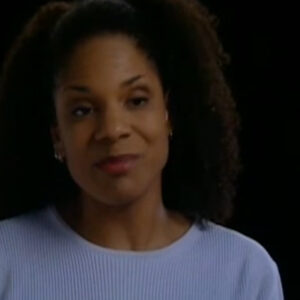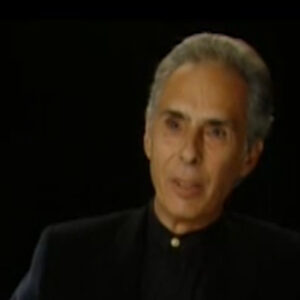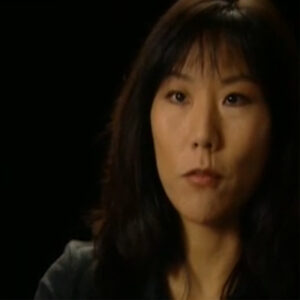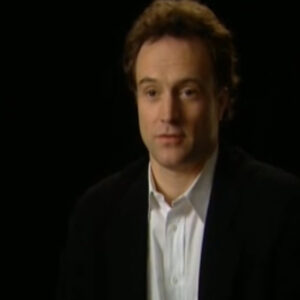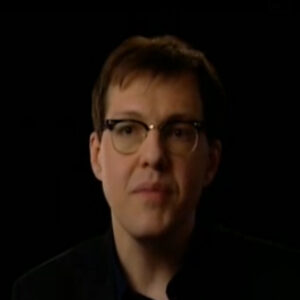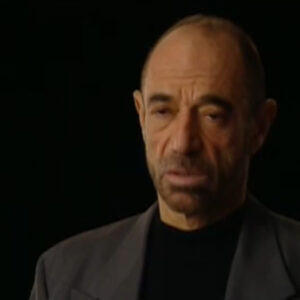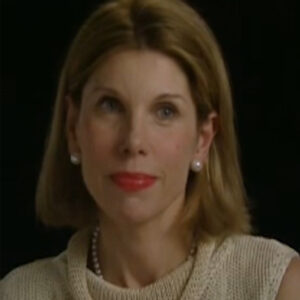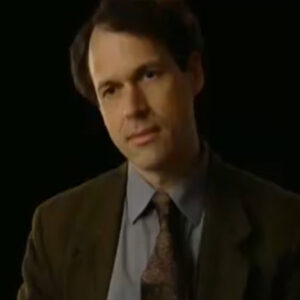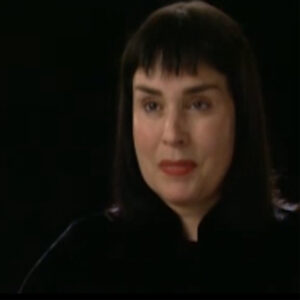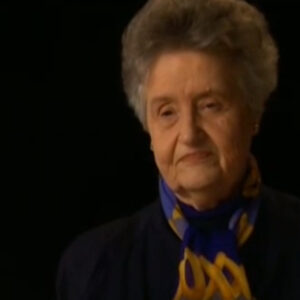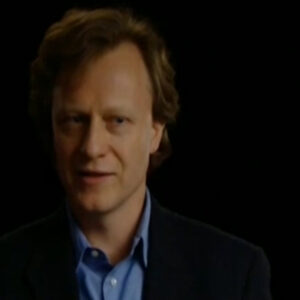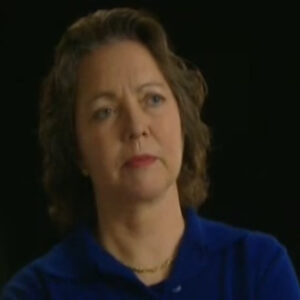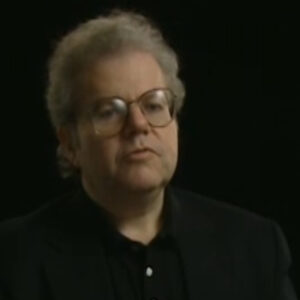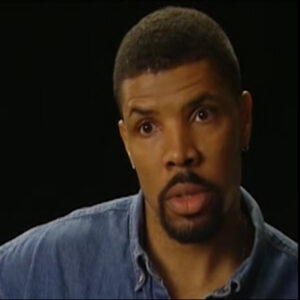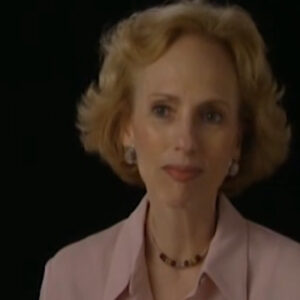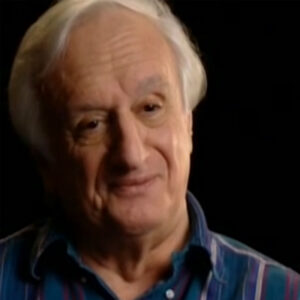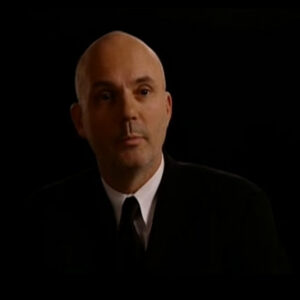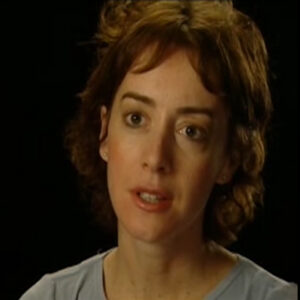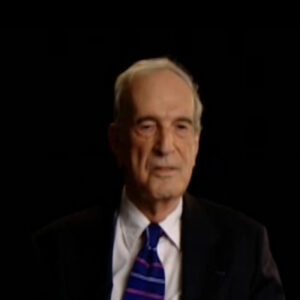Speaker I started when I was four and a half. I started playing the piano. It was I’ll be honest, it was my mother’s dream that I become a pianist.
Speaker My parents came here in the late 50s, early 60s, seeking, you know, the American dream from Korea. One of the earliest to come here at that time. And my father was attending UCLA and I was the youngest of four children. I have three older brothers and that was her dream. I happened to have, I suppose, some talent to go along with that, but that’s how it all began. I can’t say it’s all sheer sheer will on the part of a parent. Clearly by no means, but it’s hard to stay on track. You’re practicing many, many hours during a time when you want to play outside. You want to go to parties. You want to have friends. You want to do things that normal kids do. And you play you’re playing the piano all day long, you know, getting up at, you know, practicing couple hours before school, after school, going to your teacher’s house every single day.
Speaker It’s an abnormal life. There’s no doubt about it.
Speaker And I, I but I found, though, that during my youth and during the teen part of my years that it was an amazing thing to have this unique element to who I was in my high school of a few thousand kids. I went to a big high school public high school in Los Angeles. I was the one to play the piano. I was the you know, Julie told everybody who Julie Joy was. And I liked that uniqueness. I like being singled out for that. And I won numerous competitions about very early on. I debuted with Orchestra 10. So all the things that, you know, give rise to a budding artist. And there was a time when I was 16 that I really thought maybe I can’t I can’t do this forever. I wanted to try something else. I was rebelling. I said, you know, I could be a lawyer. I could do something else. What makes you think I should just be a pianist? And I came back to it because I realized that it was something that I could express myself with. It was so much of my identity growing up. It was my identity growing up. And going to Juilliard was a dream that actually I never growing up thought that I would achieve. It was really not in the realm of my dreams. I grew up in California, never lived in the same house growing up. It just seemed so far away. I never even thought that was should be something. But that changed my life. Coming to New York when I was 19, leaving home the security of home, coming to New York City. July. I did not have any dorms at the time. It was rough. You know, you’re 18, 19 away from home for the first time, away from your nurturing family. And you’re in big, bad New York City getting an apartment on your own. Dealing with, you know, all of the trials of New York City. It’s it’s challenging. And I mean, I it was tough for me when I first got here. So and then, you know, getting to Juilliard, you know, you’re a star in your own galaxy, if you will. And and it’s a big wakeup call.
Speaker When you go to Juilliard, huge. Your ego is put into check in. In. Quickly. Quickly. Know because they’re superstars, they come from everywhere. And you know, of course, from your point of view and maybe from our point of view, you know, there they are superstars, but yet it’s it’s you know, it was amazing process to do that. And that changed my life. And coming to New York, clearly.
Speaker What did you just brush your hair? Yeah, you’re right. Better. Yeah.
Speaker So what was it? Tell me a little bit. You said you didn’t you didn’t it wasn’t seemingly your realm of possibility. It was in New York. But what or what did you know about Julia? What was the aura? What was the legacy?
Speaker What was the Juilliard was always in your in in the you know, from, um. From my family’s vantage point. From my upbringing. It was Harvard or Juilliard. It was one of those two know ultimate institutional and educational institution. So there was no it wasn’t that I had to discover or find out about jewelry. It it was always there. I mean, if you were in music or in the performing arts, Julia, was it. So I also had the fortune of working with a former Juilliard alarm, Daniel Pollack, who studied with Ruzena Levine many, many years ago. And I had started studying with him when I was 13 privately.
Speaker And that was always, you know, always there in the picture and how, you know, you talk about your mother and this is her dream. I mean, what with with with Juilliard? In her dream, too, was that and, you know, sort of the greatest gift that auditions schedule.
Speaker Yeah. You know, I did some you need a powerful force supporting you, picking you up when you fall, when you think you shouldn’t be doing it, when you want to give up and they’re there for you. So clearly, my mother and my father were, you know, in that role. But there’s no way you do this because somebody else wants you to do it.
Speaker And there was a point in my life when I had actually gone the natural course of things, and I went on to study at USC with Daniel Pollack. It made it made sense.
Speaker It was what I should do and so forth. And it was sort of in keeping with staying in California and sort of the expected path. And, you know, after a year into it, I just realized, you know, if I’m gonna do this, I should really try. I should really try. And so I remember deciding at the end of my freshman year at USC, I was going to go for it. And I remember that second year I just worked my tail off. I mean, it was I don’t even remember working out hard. And then I remember the dream of finding out that I got and it was pretty exciting.
Speaker What was your audition like you describe?
Speaker Oh, they’re all like auditions or terrible things. I mean, they’re nerve wracking. They’re 15, 20 minutes long. Typically, you are prepared at least two hours worth of repertoire. Every every you know you know, whether it’s a Beethoven sonata, a Bach partita or a Chopin billboard or something like that. And I it’s you have to prove your stuff, you know, within a very short period of time. And I always wondered when I did auditions for all those years.
Speaker How do they really know how good you are in 50 minutes? How do they know that? And I actually had the opportunity where I was sitting in for one of my teachers. He wasn’t able to be a judge of a piano competition. And he said, you know, would you would you sit in my stead? And I said, sure. And what an experience that was to be on the other side. And it is pretty incredible. Now, granted, it was only one one snapshot, but I sat there just like all the other, you know, you know, any jury would. And it was a fast experience because it really turned the tables to understand. Can you really understand the essence of an artist who walks on stage, goes to his instrument or the piano in this particular case? And can you really get a sense for who he is, what they’re trying to do? Are they what are they trying to say? Are they communicating? Do they know their stuff? Is their fear holding them back? There’s their presence that they have. I mean, it it is so clear from the moment they walk on stage and from everything that they do, even if it’s 15 minutes.
Speaker And that that was that was a that was educated, definitely an edge kid experience.
Speaker Tell me a little bit about about your years at Juilliard. Who are you? Who are you studying? Is around you. What was that?
Speaker What was that day to be? Where we’re following actually, a pianist through this year was in her third year undergraduate. What do you do? How can you imagine her experiences would would parallel your own. What were you doing at.
Speaker I think that the school has actually. Not changed. It changed its essence, but I think the school from when I was there, which was I was there at a time before Joseph police came on. And four of, you know, sort of straddling both. So is pre police, see. And then when Joseph came on, I think it was an 84. And so I was there from 81 until 86. Getting my bachelor’s and master’s in piano performance and, you know, to learn Juilliard was it was challenging. Struggle is a struggle. It’s always something better that you and your training. There’s always someone better you at something.
Speaker And for someone like me who it’s my personal I don’t know if it’s my Achilles heel or it’s a thing that, you know, I can used to achieve things.
Speaker But that’s that’s tough to not to sort of be one of, you know, a lot of people trying to trying to make it is not really the the the word, but it’s, you know, trying to be the star, trying to be the one. And that’s was my personal struggle at Juilliard. It wasn’t so much that the the school was, you know, missing at that or whatever. I think that when I was there, it was the school probably didn’t have as much focus on my earlier years on the whole experience that it was it was so focused on performing and creating fantastic performers, but did not focus as much on the whole the whole person, you know, what’s life like post Juilliard? And I was smart enough to figure out, you know, coming up, you know, what I did was actually in my think was my last year in my bachelors. And then during my masters, I created something that would keep me excited about being a musician. And this was just from my vantage point because I, I probably wasn’t willing to admit it to myself at the time that I was at school, but I got a sense that I wasn’t going to pursue a career. And I don’t I was definitely not admitting to myself when I was in school. But what I did was I, I, I went to one of one of my professors who’s actually a professor that all pianists know at Juilliard, David Duvall. And David is an incredible Renaissance man.
Speaker And he was really a a beacon for me because he proved that as a not only as a pianist and as a is a.
Speaker Teacher, he had a wonderful role at the firm in communicating what it was that we were actually playing. Why did List write such and such piece? What were the influences in Paris? An eighteen thirties. What was Dellacqua? No way. What was his friendship like with Chopin that influenced him and vice versa. And I just loved that stuff. I’d loved the big picture. I loved weaving in all these different elements. I loved that.
Speaker I loved knowing about what was going on. Knowing beyond the written notes. And then I found that in the class as his assistant, which is actually now a position that’s in place. It’s an established position.
Speaker I was when it created actually back in in 84, I think it was where I I became its assistant and I was able to use that forum to communicate to pianists who were my peers or junior junior or more senior to me in a way that I excelled at.
Speaker Which happens I have having to, you know, build talk well and in and can again and like to communicate verbally. And it was a tremendous release for me. And I think that gave me a very positive.
Speaker Rounding out on the Juilliard experience. And I continue that on for a bit after I got my masters. And then at one point in time, I just realized, you know, who’s kidding? Who are you really an artist now or are, you know, just you know, you need to really face face that.
Speaker And I mean, so I mean, I’m ultimately made a switch to something else. Difficult decision.
Speaker Well, let’s talk about that a little. You know, I mean, in a way, I’m starting at four years old. You would be classically what’s called the prodigy track. I mean, you know, I’m sure that you considered that. And we’ve talked about we’re following a little 11 year old violinist, and you realize that it’s a big responsibility to keep someone’s love of music alive. They have this talent and they have this ear, but they don’t have the artistry yet. They can’t they don’t have enough life to have the artistry. So let’s talk a little bit about that from being so young. I mean it in a way to sort of imagined in the film, sort of mirroring thing, seeing another child playing so young. I mean, what did you know then? What did you think you were doing or did you not really know?
Speaker Well, I can only speak from my perspective. I loved performing. There is no doubt about that.
Speaker But when you are you know, when you’re younger, you have no fear. You really don’t know what you’re what you can lose in fear. I think sets in for any performer, whether it’s a competitive skier or tennis player or a violinist. Fear sets in as you get older and you understand what you have to lose. So that fear of performance. I actually really began to haunt me a little bit. And that’s just something that I don’t think I was able to. Able to get over or more? Or could. I don’t I don’t I don’t know.
Speaker And at what point did you think or begin to think?
Speaker I think I don’t know what in this for my life. Right.
Speaker You know, because you obviously spent so many years getting to that, I I decided actually really shortly after graduating Juilliard.
Speaker Because being at Juilliard is such a special institution that your association, having gone there, having. Gotten in, then surviving and then getting degrees was such a powerful accomplishment that was recognized everywhere. That is beyond the context of that without going to school and just living in New York City and trying to make it. I just I I didn’t have the fortitude for that. I, I, I was probably one of the rare birds at Juilliard. I don’t really know anyone from when I was there that, you know, maybe maybe one, one or two people out of the years that I’d been there where they chose to go different. I could imagine doing something else. And I knew that I was surrounded. Ninety nine percent by people who couldn’t imagine they couldn’t fathom doing anything else. They couldn’t. This is their life.
Speaker They live and breathe the stuff. And I could. So that’s when I knew I needed to need to move on. Thinking about what to do next was definitely, definitely a challenge.
Speaker Definitely because you get accustomed to you get accustomed to being surrounded by performance or achievement at a certain level.
Speaker So it was hard to replicate that very hard. And I took a I took a bet. And I was I was lucky.
Speaker I was lucky to have a change without that word. OK.
Speaker I can talk a little bit about I think what I think is also I’m I’m sure. I mean, I don’t know if you’re going to feel this way, but I bet you are that what those values, what that dedication, what that structure did applies everywhere else in a wonderful way.
Speaker It or maybe not. I mean.
Speaker Well, it’s it’s it’s interesting actually. Ask that question. Are there.
Speaker Present. Present the issue for.
Speaker I probably took the black and white approach coming in to Julia that if I if I was when I chose to move on, that if I’m going to move on, that’s a separate chapter.
Speaker And the next chapter, the next pursuit, whatever I go for. I’ve got to become the best dad.
Speaker And, you know, don’t look back, because if you think about it, I’ve I started my own executive search firm for financial services when I was twenty nine with just sort of a few years experience under my belt. And I don’t know what you refer that to, but I guess you don’t really know what you’re going to lose at the time. And so I did and I was married, I had a six month old baby, but I had so much to prove because I sit left so much behind.
Speaker And I, you know, for many years I didn’t tell people. I didn’t really focus on my piano background. I didn’t talk about it. I didn’t really get on.
Speaker I just I just I almost as though the chapter was closed and it was it was like having an empty, empty space in your heart or your of your soul or something like that.
Speaker But I moved on because I was so singularly focused on, you know, achieving my goals and a couple of years ago.
Speaker So this is now I got out of school in eighty six.
Speaker So you’re talking a good 12 years of denying tonight.
Speaker The past couple of years ago, I just picked up the phone and I said, I don’t know what little birdie sang in my ear or what, but I said, you know, I need to I need to circle back somehow.
Speaker And the way I thought to do it was I’ll go back and help Juilliard in some way. Maybe it’s fundraising. I’m a good salesperson. I can raise money if I do it for other organizations. Juilliard is my it was my life. And I picked up the phone and and that started my return to the last two years have been incredibly fulfilling because I’ve been actively involved in when working with the the the school in identifying people who could be helpful to the school, could bring money to the school personally, give to the school, etc..
Speaker And so I’ve, you know, my way in coming back to the school is is at least in a way that. It is derived from the success I’ve had in the business world, and so I’ve been able to now somehow I don’t know, the school needs me to give back. But I wanted to do that. I wanted to come full circle. And and I needed to show that I was something.
Speaker And then that’s that’s been my way.
Speaker So it’s been incredibly positive and working with working with the school, which is I’ve worked with many, many companies, some of the world’s best companies and representing them.
Speaker Juilliard is is a school that is incredibly professional.
Speaker And the standard, whether it’s something driven out of administration or it’s an artistic endeavor, the standard is just so high.
Speaker And that just appeals to me. I’m sort of known in my business as a as a quality elitist. And I think that’s a something I’ve coined somehow that just came up.
Speaker And and that’s true. I feel that. You know, anything short of great qualities is just not worth, you know, being associated with so.
Speaker And do you think that some of that vision came from, you know, some of that dedication? Some of that sense of quality? So in that sense. Well, I’ve got this much time to prove myself is something that was really, you know, they came to you. Your journey as a piano?
Speaker Oh. And that’s the last two years have really shown me one. Not only is it my perception and my true sense of of of realizing that so much of what makes me who I am professionally, personally is derived from all the years of of preparing for the performance, of the actual performance of of dealing with your you know, it’s not just butterflies. I mean, you know, you have, you know, physical events that might happen. Your mental state, the preparation, the diligence. All of that. The the competition. It’s definitely builds your character as an individual.
Speaker And I hope that my girls I just cross my fingers, that my daughters find something that they become passionately focused on, that that’s what drives them, that they’ll get up at 5:00 in the morning to train, to play would have it doesn’t have to be music. Persay music is great. There are many theories on why music is great training, but it doesn’t have to be that. But I do believe that that is there’s a universal a universal application to the skills that it builds. And you inherently and if you think about my business, it’s a business that’s not that well understood. In a nutshell, my firm represents major financial institutions in recruiting the UN recruitable, and it requires a lot of things or salesmanship, consultative, consultative skills, analysis and the like.
Speaker But the. By the.
Speaker The clients that I deal with, I mean, I I feel as though that the training I’ve got over the years and culminating in Juilliard gave me the preparation to deal with any situation, a boardroom, a meeting, you know, a showdown with five different competition with five different from competitions or that’s piece of cake. And I’m sort of I they joke about it in my eye at my firm about how I actually really prepare.
Speaker And that’s just second nature. So it’s.
Speaker How was it for your mom?
Speaker You know, who’d had all these all these dreams and such a kind of successful road to these dreams have.
Speaker How does that conversation go?
Speaker And you said, you know, I’m not sure that I’m going to.
Speaker It was paradise, I see on Saturdays at the free college that they rent to invest. It is quite it’s quite huge.
Speaker It’s huge. It’s it was the most difficult decision, the most difficult decision to come to. And it was the most difficult thing to actually speak to my parents about.
Speaker But I’m pretty strong willed and resolute once I make a decision. And I didn’t take it lightly. So they didn’t have a clue as to what I would do, but I said that I would do it and I made a bet. So.
Speaker And did they try to sort of say you’re making a mistake or did or were they very. Was there a kind of a respect in the kind of person that you were that they did?
Speaker I think it was very emotional. I don’t think that there was no rational. Responses. I mean, it was a very emotional and trying process to go through, I probably spent a fair, long bit of time helping them understand that.
Speaker But at the day, it’s my life and I didn’t go to Juilliard and went through all of that and achieved that level of. No accomplishment to teach, you know, little kids how to play the piano. I mean, I wanted I wanted greatness somehow. And I was gonna find it whether as a pianist or doing something else. So. There was not much of a contest on that.
Speaker Did you find I mean, you talked earlier about going to school and seeing other people, other people play, and then you were like looking to your left, looking to your right. And you’ve had been sort of the star in your high school and you get there. I did. Is it is it is it a personal struggle, both in a place like Juilliard and, you know, professionally, to have to sort of keep that sense of or try to keep that sense of self of your own? Yeah, they’re good, but I’m good. Tell me, is it was it like a constant reminder or did or where do you think in a sense that some of the environment of some place actually is a little crippling? It’s hard to keep you up to. What is it that you’re going to forge a relationship with your with your teacher or do you in any situation, I think your your your circumstances and your perception of how great or how negative something was.
Speaker Was Lara is dictated by the people you do something with. You could be doing the same thing. But if you’re not with the right people, it doesn’t make any sense. So that was that was the way finding people who believed in what made me special.
Speaker You know, there were just a couple of people that I could look to, and it was those people that I know. It enabled me to make a performing arts is, you know, people don’t hang around.
Speaker It’s sort of collegial, kind of, you know, fraternal. You know, we don’t have fraternities.
Speaker You don’t have that sort of college spirit that you would at other other universities and that, you know, people are. It’s it’s it’s it’s a difficult environment. It’s a very difficult environment. And I was fortunate. I had a very nurturing teacher. And Oksana and David Dyball actually showed me the way, at least when I was at Juilliard, that my ability to communicate and to communicate to a kind of jaded group of pianists, you know, I’d rather be playing the piano that was sitting in this class. You know, you had to sell and convince them that that what you had to say was interesting and you knew more than they did and that was relevant to them. So that was my first. But you make you know, there’s you make the best of every every situation.
Speaker I’ve actually been.
Speaker But, David, people like me like any other. I don’t know if you had this impression, but there’s some pretty grubby characters walking around. Know, I think David Caruso score. I mean, talk about some of these guys with sort of your images, the whole way of the faculty and the people you were passing by. What were your thoughts at that time coming from California to this? You know, this grand kind of world is very intimidating.
Speaker I’m not easily intimidated, but it’s intimidating. I you do have characters. I mean, the performing arts world in and of itself. It everyone is unique. So you had sort of I wouldn’t call it outlandish behavior, but I was in the music division, I think, at the time. The big difference in the school today with having the dormitory built, which was several years ago now at this point.
Speaker But when I was there, there was no dorm pianist, really only new pianists. And you there are very few inter department mingling dancers stuck with themselves. The drama division did their thing, opera did theirs. So there really wasn’t any cross-fertilization of ideas of of shared experience or anything like that. And I really didn’t like that. That was that was tough. Most of your ear basically coexisting. That’s what it felt like. And today, I spent a lot of time in that school on quite active in school. That said before, it’s a completely different place. And you see the collaboration between dance and the composer or, you know, between divisions and cross divisions is fantastic. And that that is really the beauty of the school. And I think because they live together, the commune together. And that makes a big difference.
Speaker And how do you think if you were you, you know, sort of rock the cusp of sort of the old generation to the new.
Speaker How did you see it change? I mean, I sort of know, but if you’re told that, you know, the sort of PBS viewer who was there before and what was it like and then who was there after?
Speaker Oh, gosh, it was it was really an interim. Gideon Walter, who was really an interim interim period.
Speaker And that was, I think 81 one did correct me on my dates, but eighty one eighty four. And then Joseph came in 80, 84 and I left in 86. So as much as Joseph was making changes, probably those changes, I didn’t really feel those changes as much as other than you just feel, you know, youthful leadership because he was very young when he took the job. And you feel that you saw him when you saw him, but it wasn’t a school where, you know. It wasn’t a warm and fuzzy school at the time. I mean, it you know, the administration was administration and faculty was faculty in your life really revolved around the teacher whose studio you were in. I mean, that was your life. And the practice from practice for.
Speaker And who was your teacher, Oksana Yablonski? Yeah, tell me a little bit.
Speaker It was for Oksana as passionate Russian. Very nurturing. She was. She was great for me. She really was. Chief, when even when she knew that I would probably not pursue a music career, she was just so supportive. She just days later, when I’ve gone back to see her and she sees that I’ve made something away from music. I just know that she always believed that I would do something. And that’s huge. You just need a couple of people to believe in you. And you can make something out of that.
Speaker So I’m thinking of things.
Speaker In moving on, have you let go of your musical identity or is it somewhere something about that music that’s. Forever.
Speaker Oh, absolutely. I mean, music is always in my house. I have. I bring young artists into the house and enable them to either use the piano for practicing or to try out pieces before concerts or to have, you know, mini recital, soirees, things of that nature. And that’s been wonderful. I have actually gone back to playing.
Speaker So with my business and to kids, it’s a little hard to get get in the time. But but that’s definitely goal in mind to go back to it. And it’s difficult to know how to be an amateur when you when you’re practicing and preparing it at a particular level.
Speaker It’s very difficult to just play. And for a long time I didn’t play, but now I’m definitely going back to it and, you know, very active concert door. And there’s a way to appreciate the music from my vantage point without having to actually be the one who’s doing it. My involvement with Juilliard keeps that, you know, very much alive. And I can contribute in a way that’s very gratifying to me. And I hope to continue that. And my little one, my second daughter, I think, has expressed some interest. So she’s a budding pianist, four and a half restudy or a piano.
Speaker We’ll see. But she loves the music and so is definitely part of part of that. And I finding it’s very interesting when you people read my bios in my firm’s brochure on our Web site, new clients are existing clients. If they discover the Juilliard piece of my background, they’re just fascinated. I mean, immediately there is another dimension. How incredible that you were there, that you went there and and so forth. And so there’s an immediate sort of a universal and immediate reaction to what it means, which is which is a good thing. I mean, that’s a great thing. And I find that the usually more interesting than they are sometimes and that are our accomplishments on the business side. But that, you know, whatever works.
Speaker And what do you what have you seen happen to the other people that were there in your time?
Speaker I mean, you know, maybe.
Speaker Are people playing? Do you see, I mean I mean, in many ways, I mean, yours is a real success story. You made a choice. That choice worked for you, did you? What’s the where are they now? File of the people who were.
Speaker You know, I. But to be fair, I think that I don’t you know, I haven’t.
Speaker There’s been just a handful of people that I’ve kept tabs on. But clearly, just being in New York City, I’m aware and can see people’s names and so forth. It is. I know that most everybody that I had gone to school with is having a career in music. They might be one of my dearest, best friends who helped me get through Juilliard is Hey one song.
Speaker And she was a student of Martin Kennen and she just made tenured professor of music piano at Oberlin. And she’s doing what she loves. And I just went four days with her on vacation. We hadn’t done that in sort of ten, ten. It’s been ten years since we’ve actually spend some quality time together.
Speaker And it’s just amazing how much her experience at Juilliard has now brought in her and instilled in her. This not only the love of music, but the love of sharing.
Speaker The passion in communicating the passion because we were in school, that wasn’t as clear. You know, you’re you’re just doing your thing. So she’s gone into that and she’s very happy doing what she does. Another friend of mine is is a very successful investment banker, and she’s working at one of the top investment banks or top banks. Florence, can’t we were in the same year as well. But those are most everybody is is there. They’re they’re teaching, they’re performing and performing with the New York Philharmonic.
Speaker They entered into Monacan with the violin. So it’s it’s kind of all over. But I’d say that, you know, there’s 95 percent of them are doing something in music. And most oftentimes it’s some combination of teaching and performing.
Speaker I mean, do you think it was really hard? The piano soloist world, even if even in your time, was already dwindling world away?
Speaker Very hard to get that route. I mean, it’s like everybody there. It’s like the NYU film school, right? Everybody wants to be, you know, your tour director. I’m sure every I’m sure people walk into Juilliard playing piano.
Speaker Want to be the soloist in the life of a soloist is is lonely. And it’s difficult because you don’t know much of the Juilliard alumni. Go on. If you’re in dance. I would suspect the numbers are the figures are very high for graduates getting placed in two fantastic dance companies and the same on the drama front. I mean, I see many of the people I’d gone to school with in drama, you know. Oh, I tell my husband I would just go with him. That’s so it’s so it’s so you see a lot of them sprinkled on TV or film and so forth. The piano, the life of the pianist is lonely. You know, I maybe I would have stayed with music if I had been a violinist or been part of an orchestra where there’s the collaboration and and the, you know, you know, mixing with people and so forth, the collaboration that’s that’s so that that is gratifying.
Speaker The the I think also that the pianist oftentimes has to fend for themselves almost.
Speaker They create a piano trio where they begin to then brand themselves as a as like the a welcome trail.
Speaker They’ve been very successful. And I went to school with all of them were friends with them at the time. You know, they’ve done a brilliant job of combining their talents into a singular force. Pianos have a much I have a hard time doing that. The lucky ones are able to do that.
Speaker Well, lovebird, if you can just see one little by little, Elizabeth, the piano, alone, alone, alone for hours. Would you say it’s a lonely life? I mean, how many hours were you practicing alone? How did your mindset keep you going in that way?
Speaker Music. Was it the. Discipline, was it just the intrigue? What the.
Speaker Practicing just becomes something that you do, it’s something that it’s like waking up and brushing your teeth. It’s you can’t really think twice about it. It’s something that you have to do every day.
Speaker Lee, it’s.
Speaker You know, it is difficult being alone in a practice room. I didn’t like it. I didn’t like it.
Speaker And I knew that I needed a more tangible report card. I needed a report card that I could say I compress this, this and this. And this is in that’s the subjectivity. That is in terms of who has a career and who doesn’t, who’s been successful and in who’s a better P.A. and who’s got a better interpretation. All of that is something that’s harder to deal with for someone like me. It’s probably more practical.
Speaker I do some important things that we haven’t we haven’t talked about. I’m just looking at it. I feel like you talk so credibly, interestingly about it. It’s really interesting when people, you know, it’s like not everybody, you know.
Speaker It’s not for everybody, but it’s such an it is an intense time, and if it weren’t be, it wouldn’t be so intense if he hadn’t had this experience before or the whole training to get you to that. I mean, the culmination of my musical career was graduation from Juilliard. I did not pursue life outside being a student. And maybe I was too self-aware that I would find disappointment, that I would be frustrated, that it wouldn’t be satisfying to me. I don’t know. But, you know, my husband said to me, there’s you could do anything. And that was pretty powerful, too. And so taking the leap into doing something completely different were by skills, you would think, as having been a pianist would be complete, not relevant at all. But it is relevant because it makes me utterly confident.
Speaker There isn’t a single situation or person or anything that’s brought before me that I don’t feel I can master or overcome. So it might be learning that this piano concerto in six weeks or it might be mastering understanding of a particular industry in preparation for a client meeting or something like that. And there is as much high wire performance in the world today that may not take place on stage, but takes place in the business world because the world is so competitive. And whether you’re an inventor or you’re a violinist or you’re a pianist or you are a skier or a tennis tennis star, you need to be able to communicate what you’re doing. And if you find the most successful people today are the ones who are communicating what they’re trying to say, it might be Tommy Hilfiger in communicating his brand.
Speaker He’s not just design. He’s communicating something.
Speaker Or it might be, you know, someone else doing something completely different. And I found its success comes from knowing yourself, knowing what makes you special and knowing what you’re not so great at and compensating for it and then going for it.
Speaker So all of that is definitely, you know, in the works and behind the scenes. And I can’t pinpoint maybe learning the bar Boccaro is infused would help me today. But I do think there’s some there’s a lot of value.
Speaker It’s a pretty high watermark, actually. You’re not really you know, we’ve had a lot of people say, you know, it’s not about fairness, they’re not about it. And, you know, it’s about keeping something the arts alive as a really important thing that, you know, I think it was with Marcella’s who said, you know, let’s not encourage everybody to have a cheeseburger at McDonald’s because it only costs a few bucks that it takes five minutes to get it. Otherwise, everyone’s going to keep eating cheeseburgers. They’re all going to be ugly.
Speaker He was like he was sort of the, you know, sort of talking about the importance of arts education.
Speaker And that must be part of your journey back to Juilliard somehow.
Speaker What I am and what I’m finding now that I’m back involved in the school, I’m finding I just getting exposure to wonderful facets of the school where they are really gone beyond.
Speaker This is just a performing arts institution where they’ve actually you have doctoral student who are incredibly well versed in kink, verbally communicate and in and communicate, instruct, empower. What have you. What it is that they’re doing. So it’s now not just the playing. It’s about how do you then apply that to the world outside your piano? So it might be, you know, taking music to a nursing home. It might be teaching underprivileged children in the inner city about what music can be, that there is some art opportunity in that there’s so this school is really broadened its reach. And again, that broad, you know, sort of more horizontal, linear way of looking at the world is something that very much appeals to me.
Speaker So I almost wish I’d gone to school at Juilliard today than when I had actually the last thing that I wanted to see if I could get you to do it on the same topic that I would’ve done. Great. You don’t know. But I mean what? I mean, you go, but you go.
Speaker I’ve heard I’ve definitely heard of his work.
Speaker I mean, that being even offered at Juilliard. I mean, that would be fantastic.
Speaker It did. Did the music technology, the how to how to how to present yourself.
Speaker How to all these other elements. It’s not just about how you’re going to perform. There’s all these survival techniques. And those of us who’ve graduated many, many years ago didn’t have weren’t really equipped with a lot of that.
Speaker But today they definitely are. Definitely.
Speaker And do you think the kind of psychological work that someone like John is doing, I mean, and he’s doing it not only how do you get over your fear, how do you recover from this? You know, he’s also talking to, you know, some young girls that maybe came from China that were brought up in a certain way. It’s like, hey, I have to learn how to forward yourself. You can speak to your manager brought up in a cultural situation where that was inappropriate. Well, you’ve got to fend for yourself. And I never really existed.
Speaker I didn’t think those courses would exist in the fact that they do is a it is a tremendous sign of where the school is, where the school is going. I mean, that that is what makes people successful. That is what. Whether whatever you’re doing. That was what makes them successful. But they can what you want to be able to do is put yourself in.
Speaker And that’s why the school is doing today, is empowering the students to to it’s because it’s not just about who plays the best or who is perceived to have played the best. You want to make a career, you have to figure out how you’re going to make your career. And this is it, because you love teaching. Is it because you’re going to spread the gospel of how this particular music can be learned? Is it because you want to teach other teachers? There’s so many. I think what the school is done now in the recent years is opened up the eyes of the students that you don’t just have to be performing. And that’s part of it. But you can have a very full and rich career going beyond that.
Speaker And that’s that’s huge, because I always actually said said if you speak to friends of mine, I always said when I have I when I make a lot of money, you know, when I’m gone, I can I can I I want to create some kind of a foundation or some kind of organization that helps artists or young graduates. Recent graduates bridge the gap of identifying opportunities where they can play, you know, creating those opportunities where they can play so that it’s really not just like, oh, dear, what do I do now? I’m waiting tables on Columbus Avenue and practicing during the day and doing these competitions, you know, to give them some sort of tangible outreach to create opportunities because people want music. But you also have to in this kind of world, you have to create those opportunities as well. So that was sort of my dream. But I think I think I’ll do that one day.

